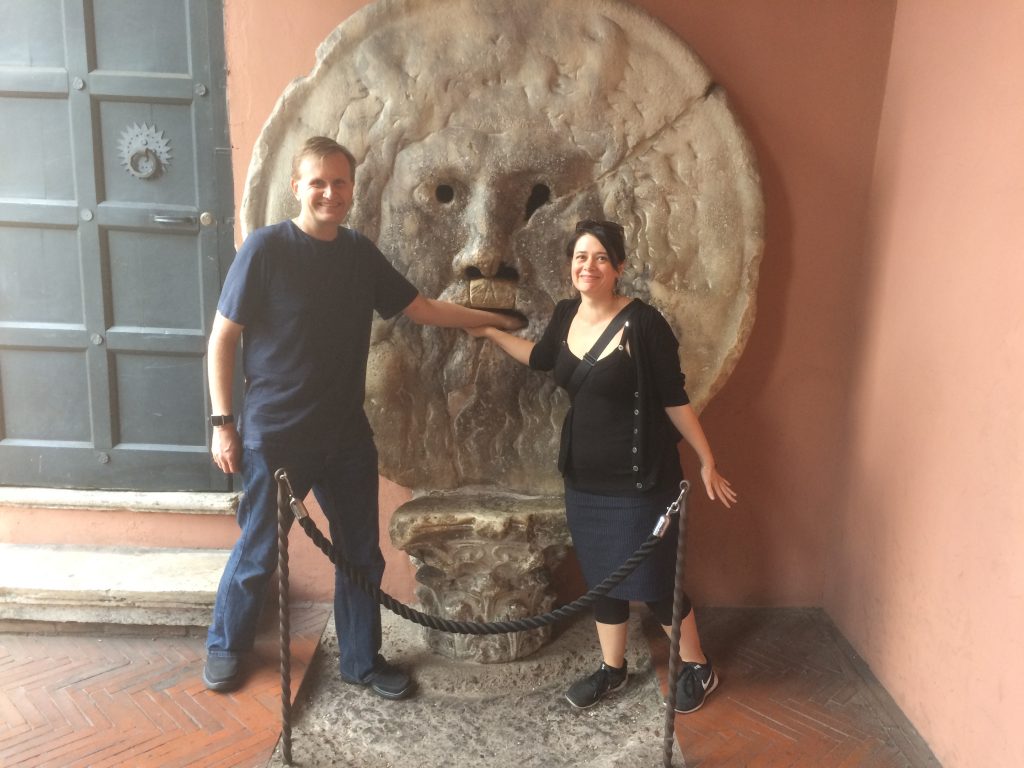
Imagine being in a relationship with a partner you don’t trust. Would you be able to have good clarity in such a relationship?
If you don’t trust your partner, you won’t be able to trust that they’ll do what’s mutually beneficial for your relationship. This will make it harder to invest in your relationship. You’ll feel inclined to hold something back. You’ll feel a need to protect yourself against the risk of dishonesty, betrayal, harsh judgment, and so on.
But the odd truth here is that if you knew for certain that you couldn’t trust your partner, you could still experience a strong level of clarity. You wouldn’t bother investing in a trust-based relationship with such a person. You’d focus on self-preservation instead. If you knew that your partner was going to lie, cheat, and perhaps act abusively, and you grew to expect such behaviors and to tolerate them, you could still feel reasonably clear about the relationship and where you stood within it. You’d be savvy enough to learn to control and manipulate your partner instead of trusting them. There are indeed relationships like this, and they’re often fairly stable over many years, so our model of clarity must account for this.
A low-trust relationship can still be a fairly predictable one, and hence it can have relatively high clarity. Suppose, for instance, that you got into a relationship with someone for the secondary gains, such as access to a wealthy lifestyle, and you could freely admit that to yourself (even if you hid that intention from others). And suppose your partner abuses drugs regularly. If you’re honest with yourself about your reasons for being in such a relationship, and if you feel willing and able to deal with the highs and lows because you really want those secondary gains, you could actually surrender to the truth of your situation and thereby feel pretty clear about your path within the scope of that relationship.
You wouldn’t delude yourself into thinking that you have a fairy tale romance. You might put on a good show for other people, but you’d know and accept the truth of your situation. You wouldn’t be so naive as to be fooled by your partner’s frequent lying. When you felt it was important to know the truth in areas where you suspected lying, you’d conduct your own independent investigation rather than accepting your partner’s word. You’d take steps to protect yourself from potential abuse, and you’d accept it as a cost of doing business, so to speak. In a way, you’d actually trust your partner – as in trusting them to behave like a drug abuser or a scoundrel. You trust that you couldn’t trust them.
As long as you stayed aligned with the truth of your situation and didn’t pretend that it was something other than it was, you could still feel pretty clear about your journey together and where you were headed. Maintaining a cynical view of your relationship would actually serve your sense of clarity.
On the other end of the spectrum, what if you did trust your partner? This can lead to strong clarity as well. You’d make different predictions about your partner’s expectations based on trust. You could expect your partner to be honest with you. You could expect some degree of loyalty to your relationship. You could expect to be treated fairly. Your partner’s past patterns of behavior would give you good cause to form these expectations.
In either type of relationship, you could feel psychologically safe – but only if you don’t succumb to self-delusion. In the low-trust relationship, you’ll need to develop self-preservation skills in order to feel psychologically safe. In the high-trust relationship, you could achieve psychological safety through feelings of love and caring.
At these extremes we can have good clarity, but what about the gray area in the middle?
You can still achieve decent clarity when you’re not at the extremes, as long as you seek to align your expectations with reality. What muddies your sense of clarity is when you cross the streams. Try to blend a high-trust relationship with lots of suspicion. Or try to combine a low-trust relationship with an unrealistic presumption of honesty. That’s going to pollute your sense of clarity because your expectations will be out of alignment with reality.
Expect human beings to behave like human beings, which means that sometimes they’ll behave like heroes and sometimes like villains. It’s reasonable to expect that in the world of humans, you’ll encounter some dishonesty, cheating, cruelty, and other human foibles. Humans have been practicing such behavior for millennia. To assume that your life will somehow be devoid of such issues isn’t likely to match up with reality. Life isn’t all rainbows and unicorns, but nor is it all zombies and pirates.
Within this expectation comes a deep level of forgiveness, not just of other people but of yourself. When you accept that other human beings will sometimes behave chaotically, it helps you accept this about yourself.
I share this as someone who has walked in the world of villains and in the world of heroes, and I’ll tell you that villains have their heroic moments, and heroes have their villainous moments. We are all – at our core – infested with human chaos. And this is part of the beauty and magic of life.
To deny the presence of this chaos is to reduce your sense of clarity. It makes no sense to deny what you’ve seen and experienced so often and can reasonably expect to be part of your reality in the future. But if you can accept the chaos and even learn to love it and to play with it, especially in your human relationships, you can stroll through the world of humans while maintaining a strong feeling of centeredness and psychological safety, even as the world throws you for a loop now and then. You may not be able to predict the events of each day, and you’ll often be surprised, but you can predict that if you embrace and accept the chaos, you’ll be in for a fun ride.


